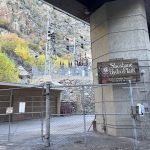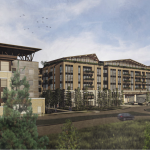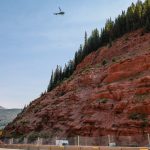U.S. ambassador to Iraq inaugurates reconstruction team in ancient Babylon
BABYLON, Iraq – Standing next to the ruins of the ancient city of Babylon, the U.S. ambassador inaugurated a provincial reconstruction team in central Iraq on Monday – launching a civilian-led approach to rebuilding the country that could take the burden off the U.S. military.The teams, made up of U.S. government workers led by a State Department official, are modeled on a program that has been considered a success in Afghanistan, U.S. Ambassador Zalmay Khalilzad’s last post.Previously, American military commanders were in charge of coordinating projects in postwar Iraq, such as repairing schools, replacing water mains or ensuring the supply of electricity.Khalilzad said the new teams – known as PRTs – will focus on developing the ability of Iraqi provincial officials to take the lead in rebuilding Iraq.”Our goal in Iraq is to have an Iraq that can stand on its own two feet,” Khalilzad said, standing in front of a replica of the Ishtar Gate, part of Babylon’s heritage as one of the ancient world’s premier cities. “Establishing PRTs is a new addition to our strategy for success in Iraq.”Each of Iraq’s 18 provinces will eventually have a team made up of 70-100 people. A U.S. diplomat will head each PRT with a senior military officer as a deputy and a membership that includes civil affairs soldiers, experts from the U.S. Agency for International Development and representatives from the departments of justice and agriculture, among others.They will work alongside Iraqis to train police, set up courts, and provide essential services.Khalilzad said the development of governing skills at the provincial level will be critical when Iraq’s new government takes over following elections next month. The new government will work under a federal constitution, moving power away from the strong central government in Baghdad.While Secretary of State Condoleezza Rice launched the first two PRTs in the northern city of Mosul during a visit Nov. 11, none of the teams will begin work in earnest until after the Dec. 15 election, officials said. The teams for Babil, Ninevah and Tamim will serve as a test for the rest, which will start work early next year.PRTs were first developed in Afghanistan in early 2003. U.S. military commanders realized that “winning the peace” after the ouster of the Taliban regime required winning acceptance among local people.In Afghanistan, the PRTs melded military operations with humanitarian and reconstruction work. But they were criticized by humanitarian agencies, who accused the military of blurring the lines between fighting and relief, thus endangering neutral civilian aid workers who were then perceived to be part of the U.S. military.NATO troops have taken control of nine PRTs in the north and west of Afghanistan. NATO is expected to take on eight more PRTs next year for a total of 17 out of Afghanistan’s 34 provinces.In October, U.S. Gen. B.B. Bell, commander of NATO’s Allied Land Component Command Headquarters, pointed to the success of Afghan legislative elections in September as proof of the PRTs value in Farah province, near the western border with Iran.”Had we not had this PRT here over a period of time, I’m not certain that everyone would have felt that a governmental process like voting could have been accomplished,” Bell said.The U.S. Institute of Peace, a nonpartisan group created by the U.S. Congress, last month issued a report praising the PRTs in Afghanistan.”Despite the vague mandate and limited resources, PRT military and civilian participants were able to make helpful contributions,” the report concluded. “Through imagination, courage, and determination, PRTs provided a positive international presence in places where there otherwise would have been only combat forces conducting kinetic operations.”The PRTs in Iraq have evolved considerably from the first teams deployed in Afghanistan, with a civilian in command and the focus concentrating on training and equipping local officials, police, engineers, farmers and judges.But the military will still play a key role, Khalilzad said. “We couldn’t do this without military ownership and cooperation,” he said. “For security, among other reasons, it has to be with the military.”The Institute for Peace, however, said it doubted the PRTs could succeed as well in Iraq.”PRTs fare well in reasonably permissive environments, where even a small, lightly-armed military force can make a meaningful contribution to regional security,” the institute said. “PRTs would not be appropriate for Iraq, with its large population centers and high-intensity combat operations.”For more than 1,000 years, Babylon was one of the world’s most celebrated cities, where King Nebuchadnezzar II built the Hanging Gardens of Babylon, one of the Seven Wonders of the Ancient World. The city 50 miles south of Baghdad declined and fell into ruin after it was conquered by the Persians under Cyrus the Great around 538 B.C.Vail, Colorado










